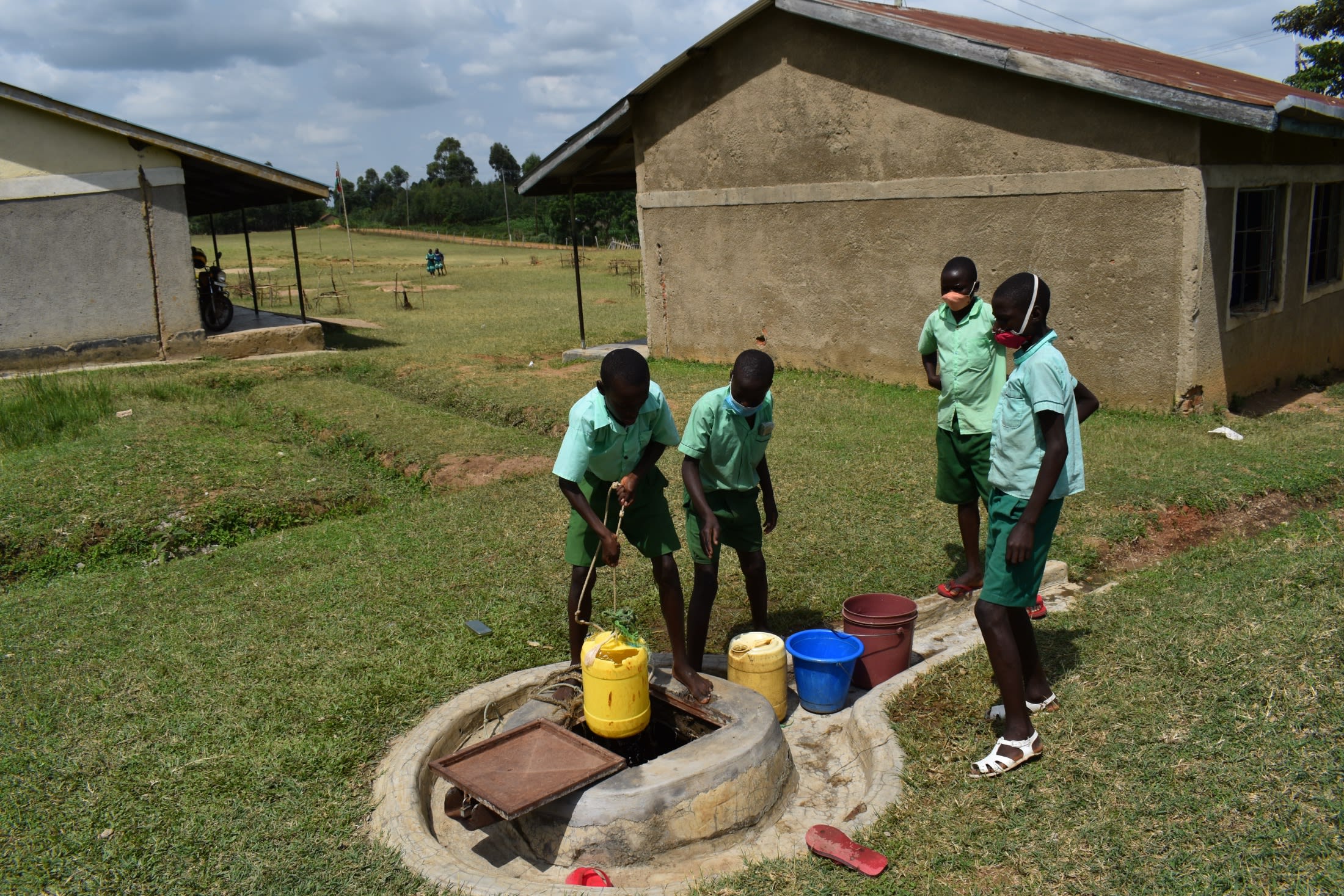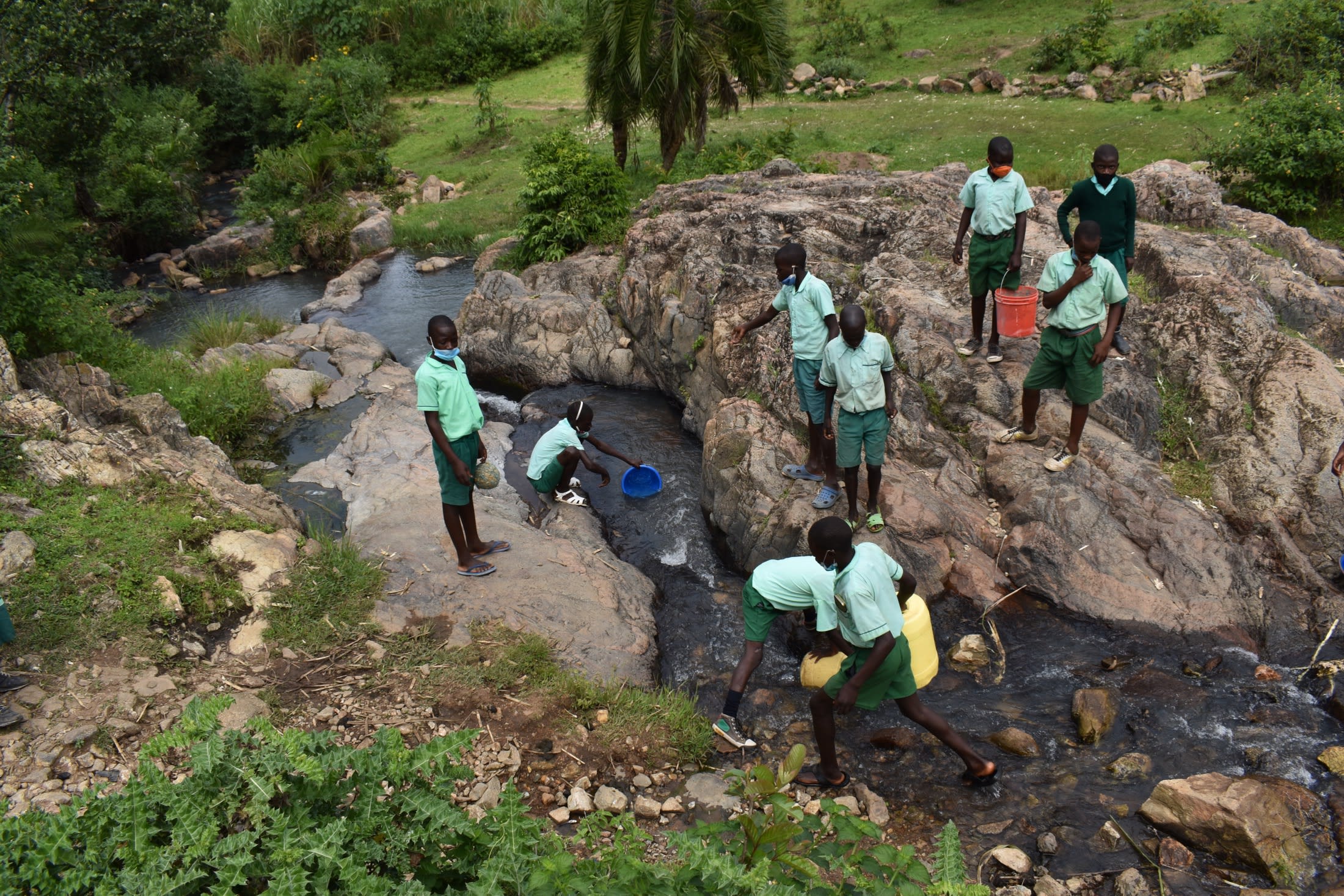The 615 students at Mutoto Primary School spend most of their time fetching water, and even then, it is never enough.
The school has its own well, but it dries up during half of the year, meaning the only usable source is a river an hour's journey away. Pupils stand and play in the same water they later drink. The river is open and shared with local wildlife.
Even when the school's hand-dug well has water, the water quality is dubious at best. It is cloudy and emits a bad odor.

With all the water issues facing the school, it's no wonder that there was a major cholera outbreak amongst the students in 2013. The government was forced to intervene, sending in health officials to investigate the cause, which was found to be from a lack of proper hygiene and clean water. And things have only gotten worse since then.
"[We] still have common diseases, especially waterborne diseases such as typhoid, prevailing in the community," said teacher Joakim Amendu. "You have seen yourself where we get water from."

With poor quality water within the school grounds and even worse quality water an hour's trek away, it's impossible for students to supply all the water needed to keep the school clean and the handwashing stations full.
"I am hopeful you will help us," said student, John B.
"Kindly, we plead [with] your organization to help us," Joakim added.
What We Can Do:
New Well
We conducted a hydrogeological survey at this school, and the results indicated the water table beneath it is an ideal candidate for a borehole well. Due to a borehole well's unique ability to tap into a safe, year-round water column, it will be poised to serve all of the water needs for this school's large population, even through the dry months.
The school will help collect the needed construction materials such as sand, rocks, and water for mixing cement. They will also provide housing and meals for the work team, in addition to providing local laborers. We will complement their materials by providing an expert team of artisans and drilling professionals, tools, hardware, and the hand-pump. Once finished, the school’s students and staff will use water from the well and staff for drinking, handwashing, cooking, cleaning, and much more.
The school and we strongly believe that all of these components will work together to improve standards at this school, which will help lead to better student academic performance and unlock the opportunity for these students to live better, healthier lives.
Handwashing Stations
The student health club will oversee the two new handwashing stations we will provide and ensure they are kept clean and working. The club leaders will fill the handwashing stations with water daily and make sure they are always supplied with a cleaning agent such as soap or ash.
VIP Latrines
Two triple-door latrine blocks will be constructed with local materials that the school will help gather. Three doors will serve the girls, and three doors will serve the boys. These new latrines will have cement floors designed to be easy to use and clean. And with a rain tank right on school property, there should be enough water to keep them clean.
Training on Health, Hygiene, COVID-19, and More
We will hold a one-day intensive training session with students, teachers, and parents. This training will cover a wide range of topics, including COVID-19 symptoms, transmission routes, prevention; personal and environmental hygiene; and the operation and maintenance of the rain tank, latrines, and handwashing stations. There will be a special emphasis on handwashing.
Our team of facilitators will use various methods to train, including participatory hygiene and sanitation transformation and asset-based community development. We will initiate a student health club, which will prepare students to lead other pupils into healthy habits at school and home. We will also lead lectures, group discussions and provide illustrative handouts to teach health topics and promote good hygiene practices within the school, including handwashing and water treatment. We will then conduct a series of follow-up training before transitioning to our regularly scheduled support visits throughout the year.

 Borehole Well and Hand Pump
Borehole Well and Hand Pump
 Rehabilitation Project
Rehabilitation Project

































